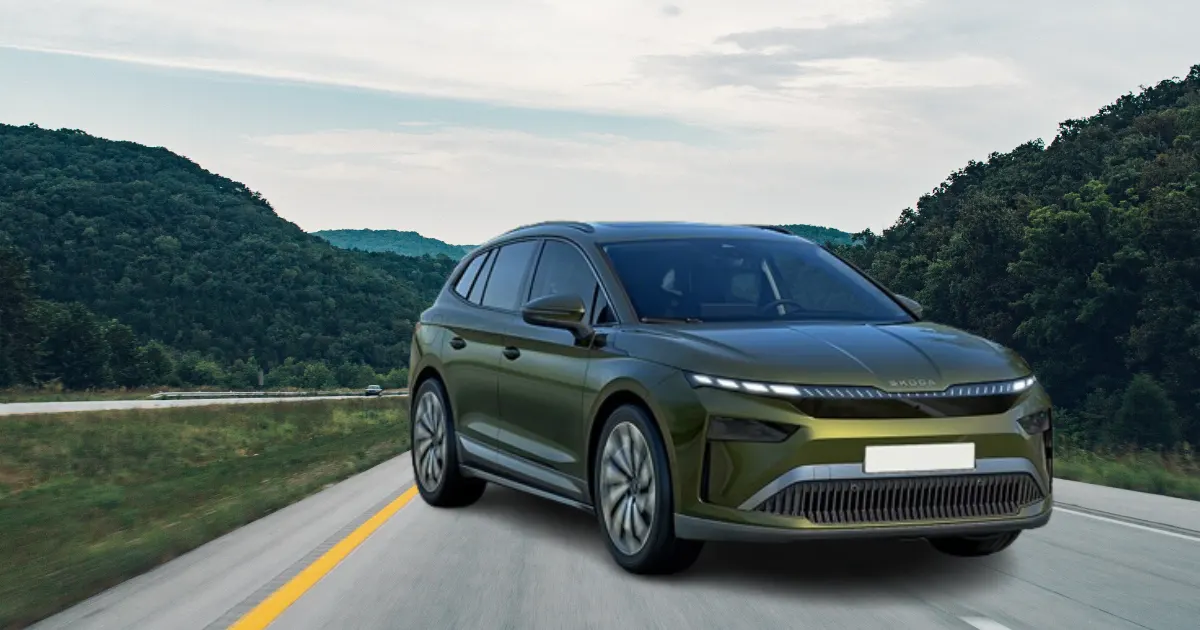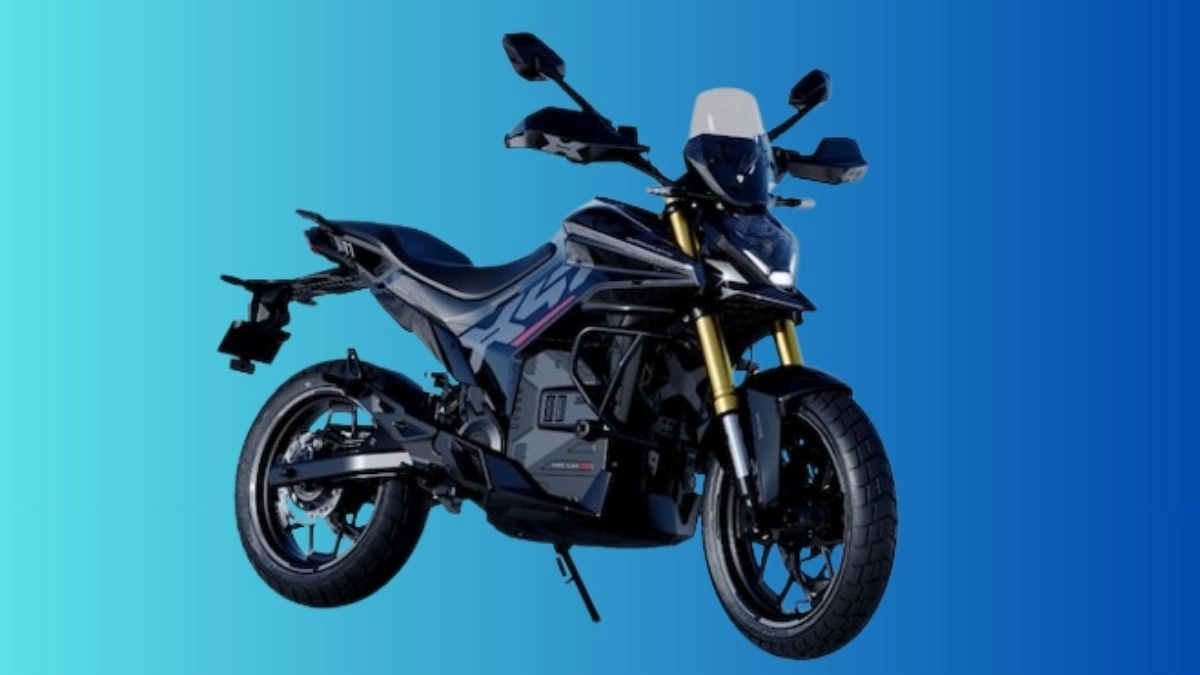Czech automaker Skoda Auto is strategically positioning India as its “second pillar” of global operations, moving beyond European dependence through an aggressive electric vehicle push centered on complete localization of its CMP21 platform. Speaking exclusively at IAA Mobility 2025 in Munich, CEO Klaus Zellmer unveiled comprehensive plans to manufacture India-specific electric vehicles by mid-2027, marking a transformative chapter in the company’s international expansion strategy.
Strategic Pivot: India as Skoda’s Growth Engine
Diversification Beyond European Markets
Zellmer emphasized the critical importance of geographical diversification in today’s volatile automotive landscape. “To depend just on one region is not a good idea. Many other car companies have found that out the hard way with China and the US,” he explained during the exclusive interview. This strategic pivot positions India as Skoda’s primary growth market outside Europe, where the company currently holds the third-largest market position.
The decision reflects broader industry trends toward market diversification amid geopolitical uncertainties and regulatory changes affecting traditional automotive strongholds. Skoda’s India 2.0 project, launched in 2018 with a €1 billion investment, has already demonstrated the market’s potential through remarkable sales growth.
Building on India 2.0 Success Foundation
The success of Skoda’s India 2.0 strategy provides compelling evidence for expanded investment. The program has delivered extraordinary results, with sales doubling year-over-year in 2025, primarily driven by the compact SUV Kylaq. This growth trajectory has elevated Skoda from 0.8% market share in 2024 to 1.8% currently, with ambitious targets of reaching 2.5% by FY2026.
The Kylaq alone has sold 27,091 units in the first seven months of 2025, representing 65% of Skoda’s total Indian sales during this period. This performance helped Skoda achieve its highest-ever monthly sales record of 7,422 units in March 2025.
CMP21 Platform: The Foundation of India’s Electric Future
Complete Localization Strategy
The centerpiece of Skoda’s Indian electric vehicle strategy revolves around complete localization of the CMP21 (China Main Platform) platform. Originally developed in China as a cost-efficient derivative of Volkswagen’s MEB electric architecture, this platform will undergo comprehensive adaptation for Indian manufacturing.
“The big game in terms of battery electric vehicles will start once we have localized our platform called the CMP21,” Zellmer stated. “We are going to bring it over as a technology, but we’re going to localize and source everything for the platform in India for India”.
Technical Specifications and Capabilities
The CMP21 platform demonstrates impressive versatility, supporting vehicles ranging from 4.3 to 4.8 meters in length with battery capacity options from 40kWh to 80kWh. The architecture accommodates both rear-wheel drive as standard and optional all-wheel drive configurations with dual motors, providing flexibility for diverse Indian market requirements.
Industry sources indicate the platform features a 2,771mm wheelbase similar to the ID.4, ensuring ample passenger cabin space while maintaining the compact dimensions preferred in Indian markets. The cost-efficient design makes the CMP21 approximately 30% cheaper than traditional MEB platforms, crucial for price-sensitive Indian consumers.
Read Also: Honda and Jeep Slash Vehicle Prices by Up to ₹4.8 Lakh Following GST 2.0 Reforms
Made-for-India Electric Strategy: Beyond European Imports
Tailored Product Development Approach
Skoda’s approach to the Indian electric vehicle market differs significantly from its European strategy. Rather than importing existing models like the Epiq urban EV planned for European markets, Skoda is developing vehicles specifically engineered for Indian conditions and preferences.
“We currently do not have a plan to bring it [Epiq] to India. We want to have a car that is made for India, and then made in India,” Zellmer clarified. This philosophy ensures products meet specific Indian requirements including road conditions, climate considerations, and local preferences.
First CMP21-Based Electric SUV Development
The company is reportedly developing a 4.5-meter electric SUV inspired by the Elroq-class models, positioned as Skoda’s inaugural locally manufactured electric vehicle in India. This model will directly compete with upcoming electric variants of popular Indian SUVs including the Hyundai Creta EV and Tata Harrier EV, expected to launch in the next two years.
Additionally, Skoda is considering introducing another compact electric vehicle to meet CO2 compliance requirements, though specific details remain confidential. This multi-model approach ensures comprehensive market coverage across different price segments and consumer preferences.
Market Context: India’s Rapidly Expanding EV Landscape
Accelerating Electric Vehicle Adoption
India’s electric vehicle market is experiencing unprecedented growth, with the sector valued at $54.41 billion in 2025 and projected to reach $110.7 billion by 2029, representing a compound annual growth rate of 19.44%. Electric vehicle sales reached 1.69 million units in January 2025, marking 19.4% month-over-month and 17.1% year-over-year growth.
Government targets aim for 30% EV penetration by 2030, creating substantial opportunities for manufacturers establishing early market presence. Two-wheelers currently dominate EV sales at over 50%, followed by three-wheelers at 36%, while passenger vehicles show an 11% year-over-year increase.
Competitive Landscape and Positioning
The Indian EV passenger vehicle segment remains concentrated among domestic manufacturers, with Tata Motors commanding over 53% market share. This market structure presents significant opportunities for international brands offering differentiated products and superior technology platforms.
Skoda’s positioning strategy leverages its European engineering heritage and safety credentials while ensuring competitive pricing through local manufacturing. The company’s established dealer network of 290 touchpoints across 165 cities provides distribution advantages for new electric vehicle launches.
Infrastructure and Manufacturing Readiness
Production Facility Capabilities
Skoda’s existing manufacturing facility in Chakan, Maharashtra, provides the foundation for CMP21 platform production. The facility has demonstrated capability in producing localized platforms through the successful MQB-A0-IN platform that underpins current Kushaq and Slavia models.
The company plans to leverage manufacturing synergies between conventional and electric vehicles, utilizing existing supply chain relationships while developing new partnerships for EV-specific components including batteries and electric drivetrains.
Timeline and Market Introduction
The first CMP21-based electric SUV is scheduled for market introduction by mid-2027, positioning Skoda to compete effectively with the wave of electric SUVs expected from competitors during 2025-2027. This timeline allows sufficient development period while capitalizing on growing market demand and improved charging infrastructure.
Market launch will coincide with enhanced charging infrastructure deployment, as India’s Ministry of Power aims to establish over 1.3 million public charging stations by 2030. This infrastructure expansion supports broader EV adoption and addresses range anxiety concerns among consumers.
Network Expansion and Market Penetration Strategy
Aggressive Dealer Network Growth
Skoda’s expansion strategy includes significant dealer network growth from current 290 touchpoints to 350 locations across more than 200 cities by end-2025. This expansion particularly focuses on tier-II and tier-III markets, where 86% of recent expansion has occurred.
The network growth strategy supports both current internal combustion engine models and prepares for electric vehicle distribution. Enhanced service capabilities and technical training for electric vehicle maintenance ensure comprehensive customer support throughout the ownership experience.
Market Share Acceleration Goals
Current market share growth from 0.8% to 1.8% demonstrates momentum that supports ambitious expansion targets. The company aims for 2.5% market share by FY2026, with electric vehicles expected to contribute significantly to this growth trajectory.
Success metrics include achieving 100,000 annual vehicle sales, a milestone that would establish Skoda among India’s top automotive brands. The diversified product portfolio including SUVs, sedans, and future electric vehicles provides multiple growth vectors.
Investment and Financial Implications
Capital Allocation Strategy
While specific investment figures for CMP21 localization remain undisclosed, Zellmer indicated substantial capital commitment to platform development and manufacturing capabilities. The investment builds upon the successful €1 billion India 2.0 program, demonstrating continued confidence in the Indian market’s potential.
Investment priorities include manufacturing equipment for electric vehicle production, supplier development for localized components, and research and development capabilities for India-specific vehicle adaptations.
Export Hub Potential
India’s strategic positioning extends beyond domestic market service to becoming Skoda’s export hub for ASEAN and Middle Eastern markets. The company already exports CKD (Completely Knocked Down) kits to Vietnam, with plans for expanded regional distribution.
This export strategy leverages India’s cost-competitive manufacturing environment while serving growing regional EV demand. The approach creates economies of scale that support domestic pricing competitiveness while generating additional revenue streams.
Technology and Innovation Focus
Advanced Electric Vehicle Technologies
The CMP21 platform incorporates advanced electric vehicle technologies adapted for Indian conditions. These include battery thermal management systems optimized for India’s high-temperature climate, regenerative braking systems adapted for urban driving patterns, and charging systems compatible with Indian electrical infrastructure.
Skoda’s approach emphasizes practical technology implementation rather than premium features that increase costs unnecessarily. This strategy ensures accessibility while maintaining the safety and quality standards associated with European automotive engineering.
Digital Integration and Smart Features
Future Skoda electric vehicles will incorporate digital technologies appropriate for Indian market preferences and infrastructure capabilities. These include smartphone integration for charging management, predictive maintenance systems, and over-the-air update capabilities for software improvements.
The technology strategy balances advanced features with cost considerations, ensuring broad market appeal while establishing differentiation from domestic competitors.
Skoda Auto’s comprehensive India electric vehicle strategy represents a fundamental shift in the company’s global positioning, transforming India from a regional market to a strategic manufacturing and innovation hub. The CMP21 platform localization initiative, combined with aggressive network expansion and tailored product development, positions Skoda to capitalize on India’s rapidly growing electric vehicle market while reducing dependence on European operations.
The success of this strategy depends on execution excellence across manufacturing, product development, and market penetration initiatives. However, the foundation provided by India 2.0’s success and the company’s demonstrated commitment to localization suggest strong potential for achieving ambitious growth targets by 2027 and beyond.








